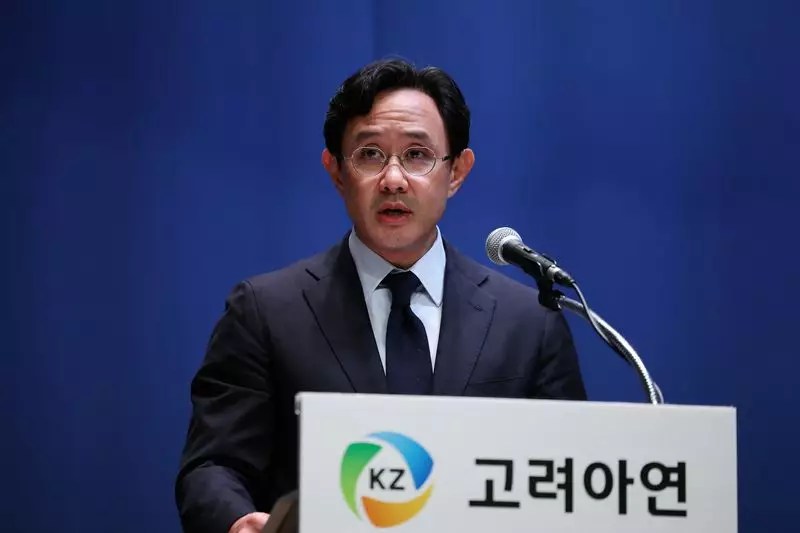In a significant corporate maneuver stirring the South Korean financial market, Korea Zinc, the globe’s leading zinc refiner, has announced its decision to retract a plan for a substantial share issuance valued at $1.8 billion. This surprising reversal comes amid rising tensions and a contentious takeover bid from rival factions within the company, specifically led by Young Poong and private equity powerhouse MBK Partners. Their aggressive accumulation of shares and potential influence over the company’s future have escalated a palpable conflict, throwing Korea Zinc into a whirlwind of investor uncertainty and regulatory scrutiny.
The immediate aftermath of Korea Zinc’s withdrawal from the share issuance plan was markedly volatile. Initially, the announcement seemed to bolster confidence, resulting in a 6% uptick in the company’s stock. However, this fleeting optimism quickly dissipated, leading to a 7% decline in share value by the afternoon. This mixed reaction highlights the fragility of investor sentiment in the face of corporate governance issues and the potential for instability in management practices.
Investors responded to this ambiguity by expressing apprehension regarding the company’s transparency and strategic direction, spotlighting the need for robust governance structures. The financial oversight authorities, particularly the Financial Supervisory Service (FSS), intervened following concerns that the proposed share issuance might involve questionable practices, further complicating Korea Zinc’s operational landscape.
The unfolding drama at Korea Zinc can largely be traced back to the escalating power struggle between Choi Yun B., the company chairman, and the opposing faction led by Young Poong. Their competition is not just about share ownership but also reflects deeper issues related to corporate control and the strategic vision for Korea Zinc’s future. Choi and allied stakeholders currently hold approximately 35% of the company’s shares, while Young Poong and MBK have increased their holdings to nearly 40%—a precarious balance that sets the stage for a fraught shareholder meeting scheduled for early next year.
In readiness for this confrontation, Young Poong and MBK Partners have taken proactive steps by petitioning the court to convene a special shareholder meeting, during which they plan to introduce 14 new board member nominations. This proposed reshaping of the board is indicative of their intent to secure a greater influence over Korea Zinc’s strategic direction and decision-making processes.
In light of recent turbulence, Choi’s response strategy appears to hinge on addressing shareholder concerns directly. Acknowledging the market’s unease, he has pledged to present a comprehensive and forward-thinking vision for Korea Zinc at the impending shareholder meeting. Moreover, he has also hinted at plans to bolster the independence of the board to improve governance standards—yet specifics remain scant.
The upcoming meeting is poised to be a potential turning point for Korea Zinc. As Choi aims to rally support from significant shareholders, including the National Pension Service, the company’s historical legacy and future trajectory are on the line. His educational background from Columbia Law School adds a layer of expectation towards transparent and judicious governance amidst this backdrop of conflict.
The saga unfolding at Korea Zinc serves as a critical case study for corporate governance, underscoring the intricate balance between shareholder interests and effective leadership. The withdrawal from the share issuance is not just a reactionary move; it reveals deep-seated tensions inherent in corporate hierarchies, especially in family-run conglomerates where personal ties intersect with business decisions.
Moving forward, Korea Zinc must navigate the ripples of market skepticism while re-establishing its credibility and trust with stakeholders. How effectively it can address concerns surrounding board independence and corporate governance practices will ultimately dictate the company’s ability to emerge from this tumultuous chapter in its history. For investors, the unfolding events serve as a reminder of the inherent risks involved in corporate dynamics, reaffirming the necessity for vigilance and strategic foresight.


Leave a Reply